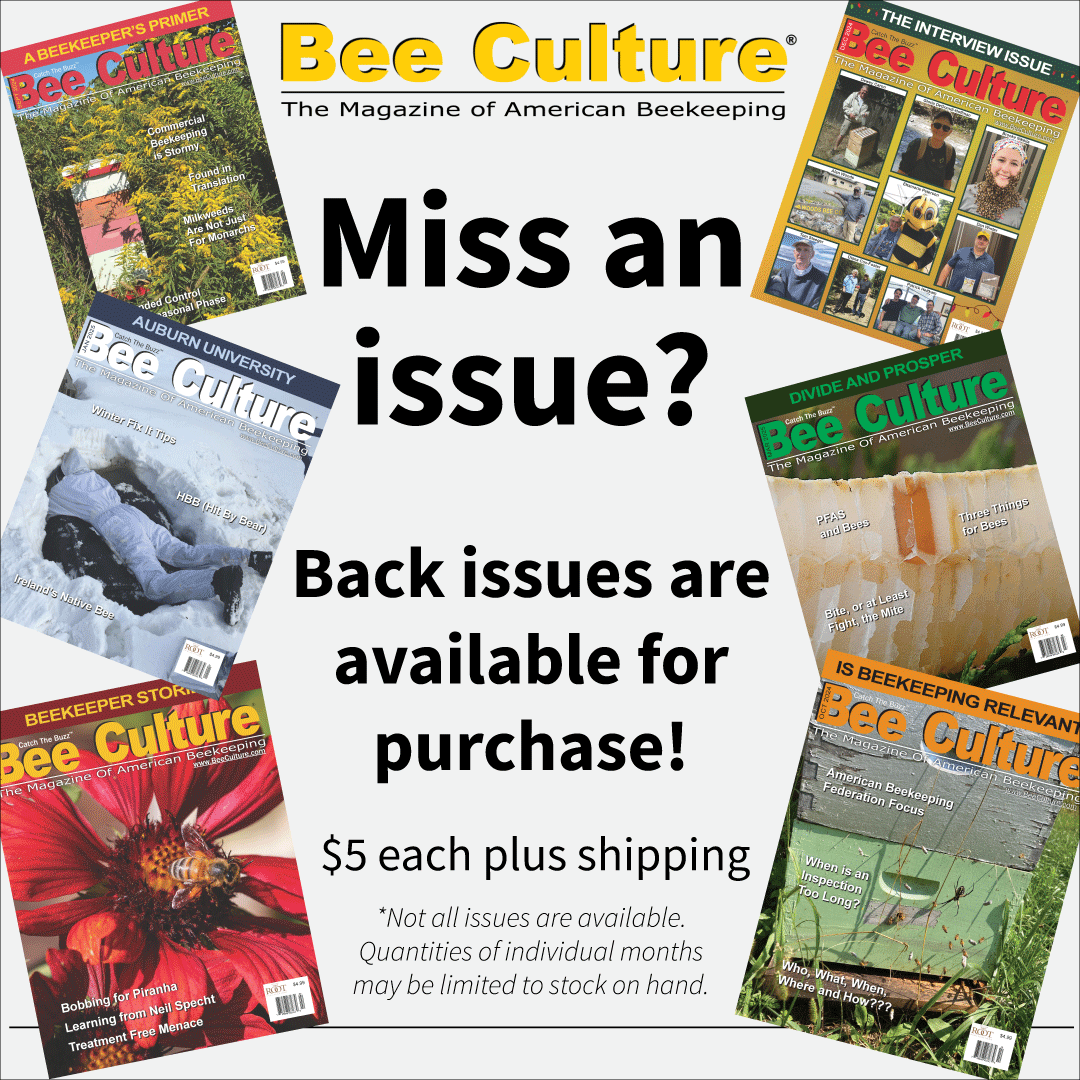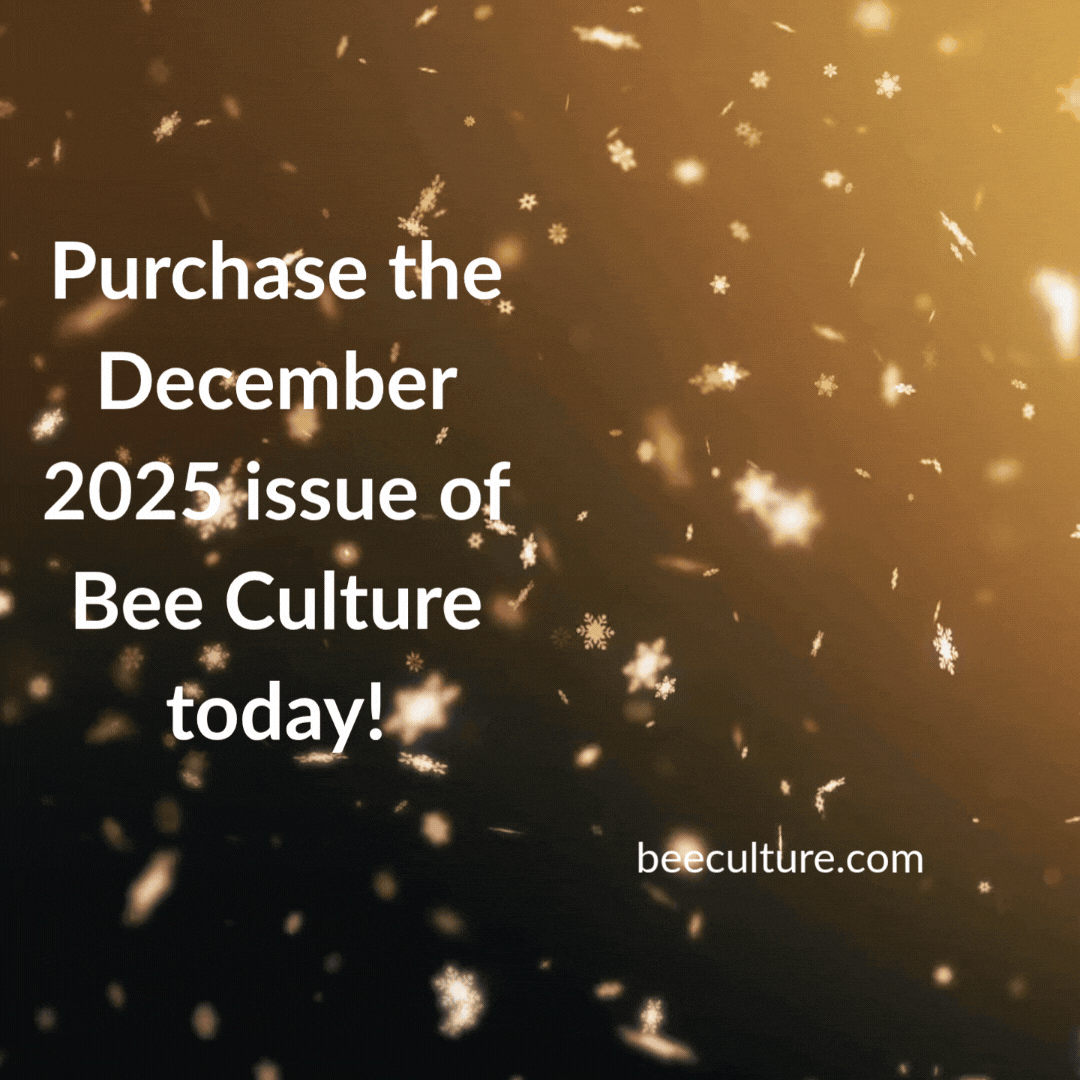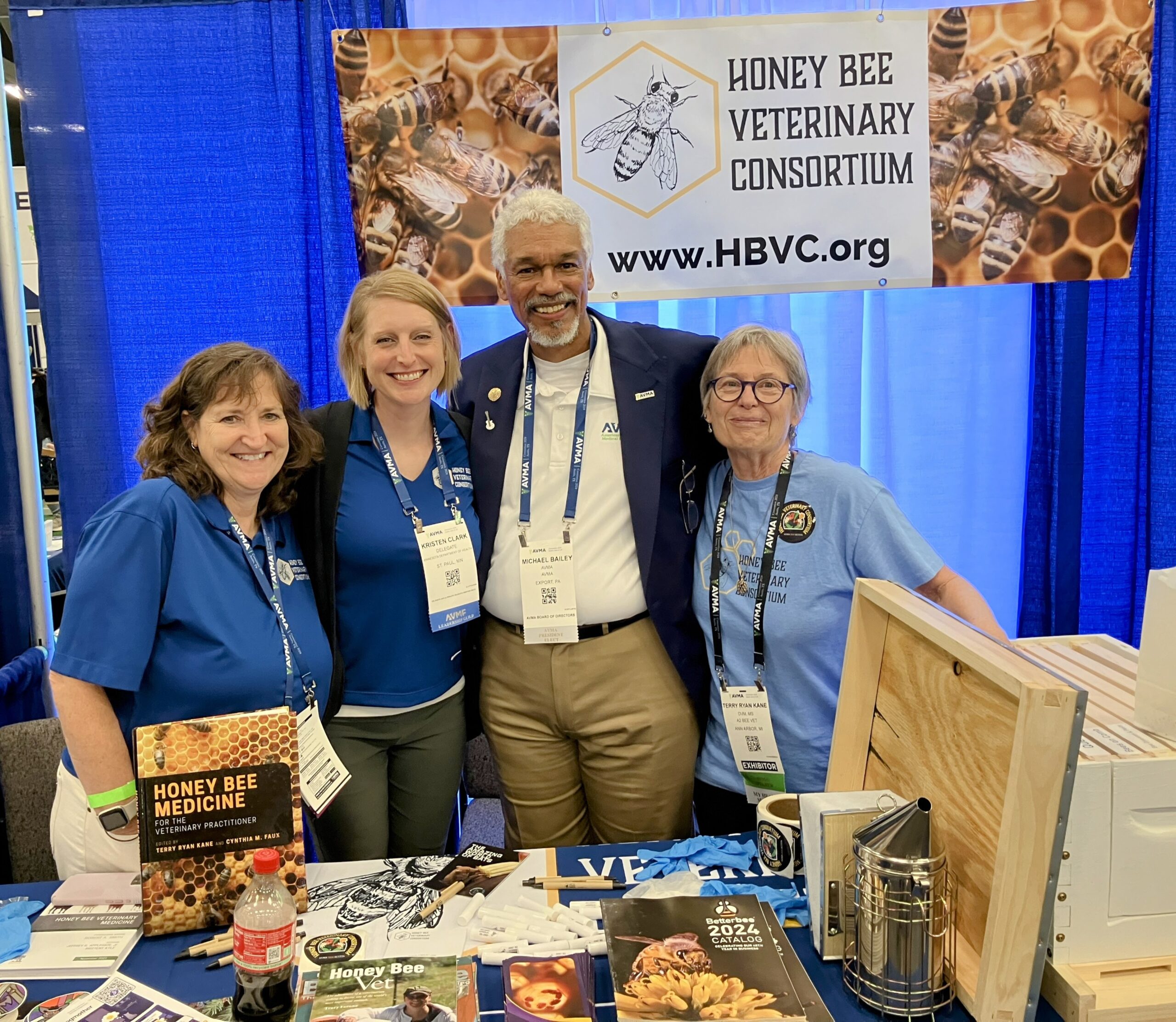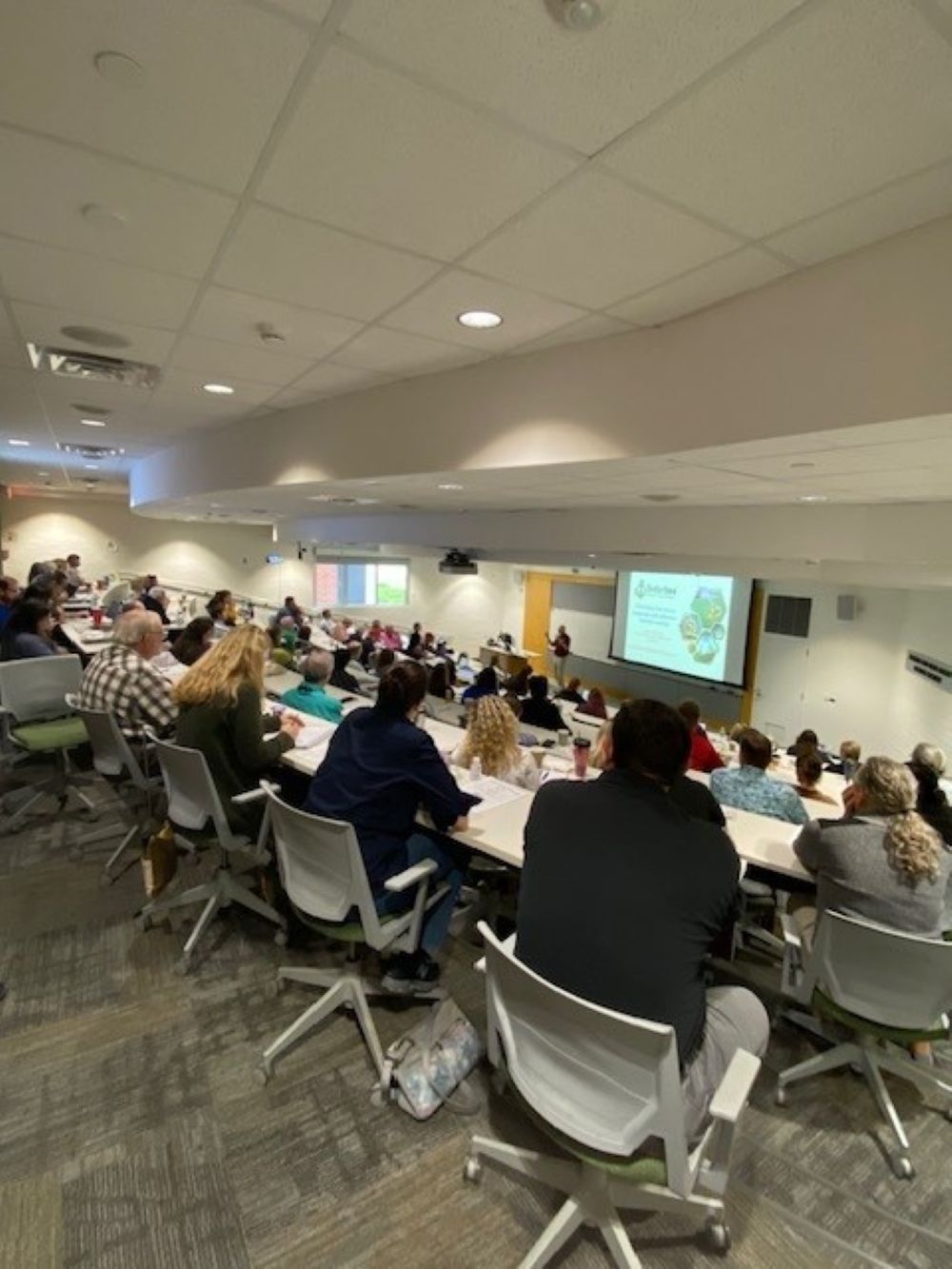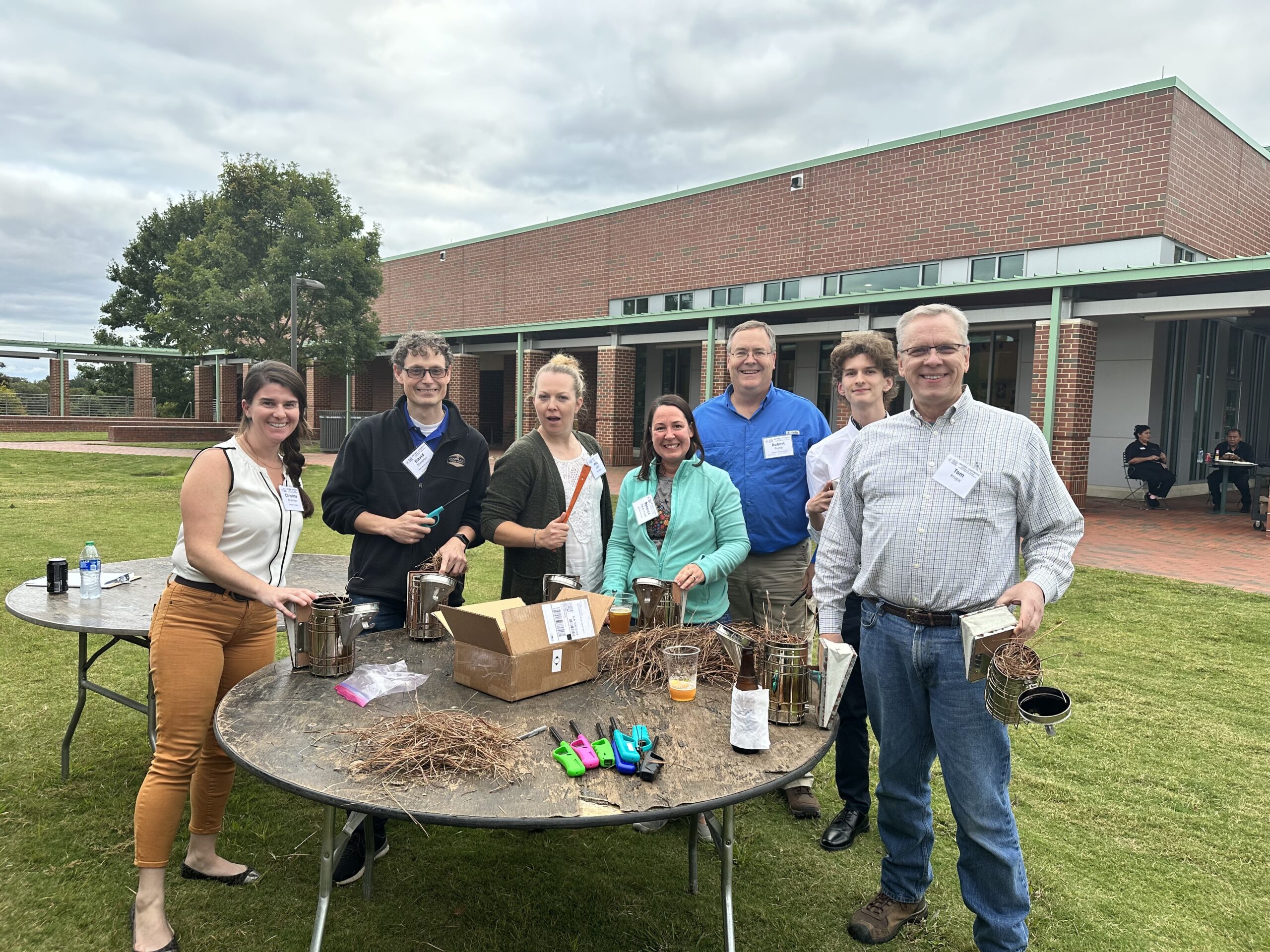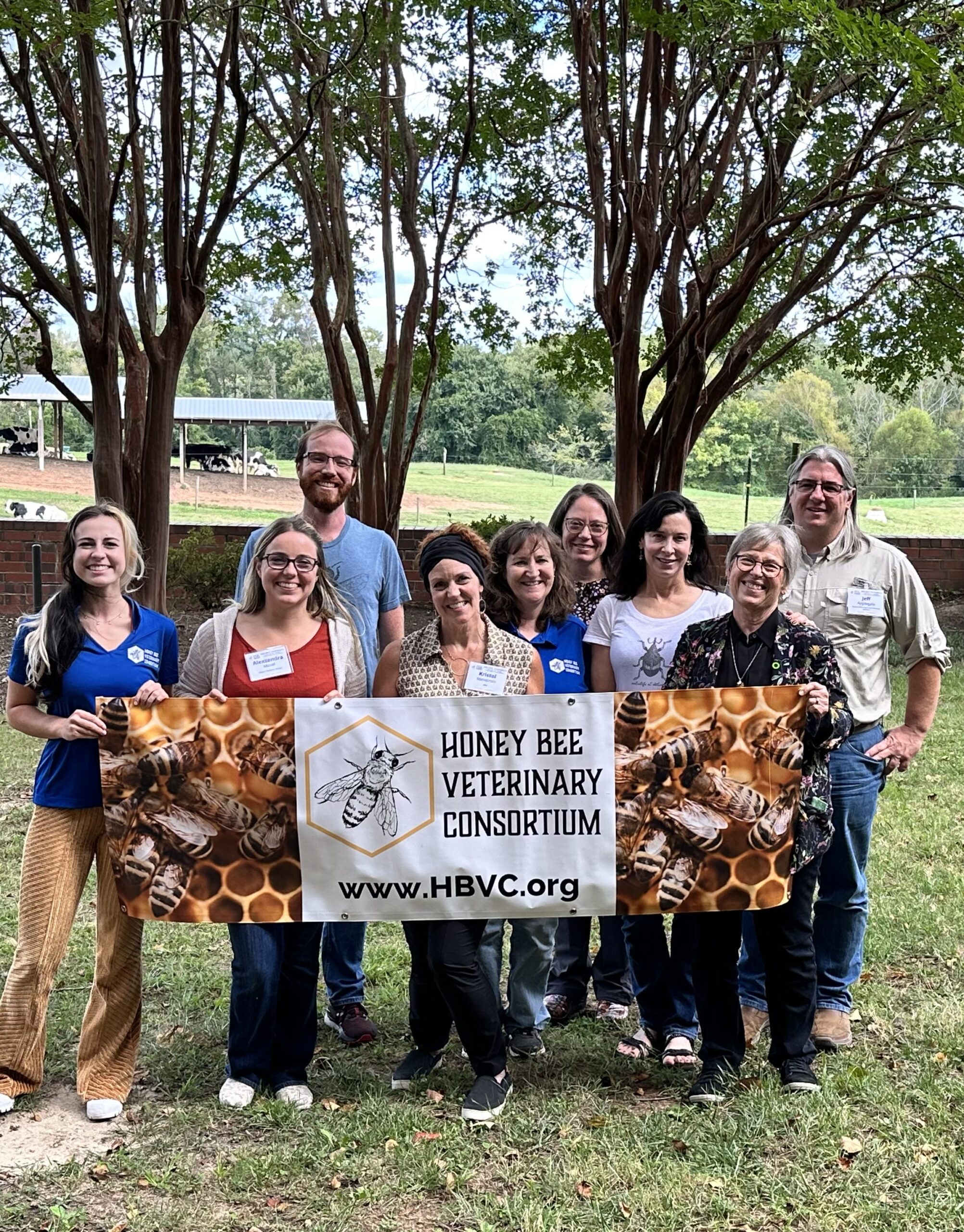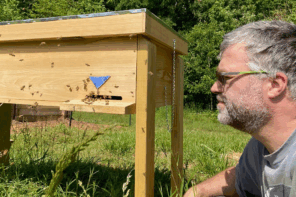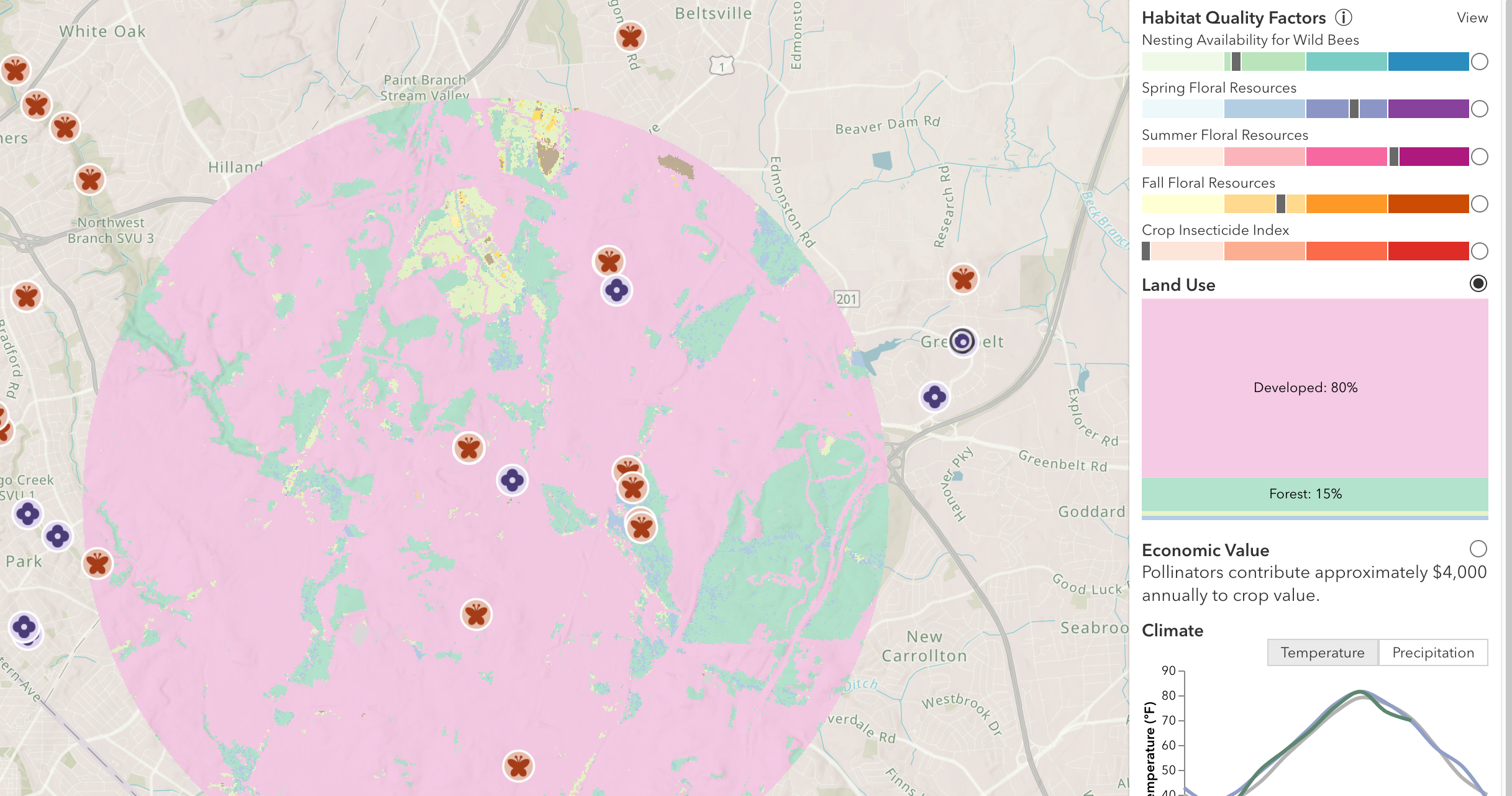Click Here if you watched/listened. We’d love to know what you think. There is even a spot for feedback!
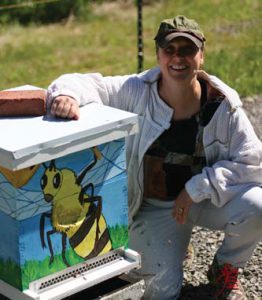
What is HBVC?
By: Dr. Tracy Farone
This month, I will be fulfilling a request to feature an organization that I have been a part of since late 2019. The Honey Bee Veterinary Consortium (HBVC). Around the time of the 2017 FDA antibiotic mandate, a few veterinarians sharing drinks and ideas at a veterinary continuing education conference envisioned and started the organization. From these humble beginnings, we have grown to well over 300 national and international members, including students, veterinarians and other animal scientists. About 20 members serve on our board and various committees.
Our goals include:
- Providing honey bee medicine education and resources for veterinarians and beekeepers.
- Supporting honey bee medicine research.
- Creating connections between individual veterinarians and beekeepers, as well as connections between veterinary and beekeeping organizations.
- Develop and increase the number of veterinarians competent in honey bee medicine, who are willing to serve beekeeping clients and honey bees
We accomplish these goals through a variety of programs run by our volunteer officers, board members and/or committee members.
Our Conference
Veterinarians are required to take 30 or more continuing education (CE) credits every two years to maintain their veterinary license. Every year, typically in September, the HBVC organizes a 2-3 day continuing education conference focusing on honey bee medicine CE for vets. We have had in-person, virtual and hybrid conferences in the past. This year, our conference will be in-person at Texas A&M September 19-21, 2025. Texas A&M has a bee lab and a veterinary school! Lectures and hands-on labs will be part of the conference, and of course a Texas BBQ! More information and sign-ups for the conference are available on the HBVC website https://www.hbvc.org/.
In addition to the HBVC conference, many of our board members provide lectures online or at veterinary continuing education conferences and beekeeping conferences. Most state and national veterinary conferences now include continuing education on honey bees along with all our other animal patients. For example, The VMX of Florida, The Midwest Veterinary Conference, The Western States Veterinary Conference, The American Veterinary Medical Association Conference, The New England Veterinary Conference and The South Carolina Veterinary Conference all have/had had honey bee programs. These conferences represent contact opportunities for tens of thousands of veterinarians.
Certification- CertHbV
The HBVC has developed a post-graduate certification program for veterinarians looking to increase their honey bee training and provide day-one competency credentials for practitioners looking to serve honey bees and beekeepers. The program consists of 7 different modules and 150 hours of education, including hands-on work. The CertHbV is an assurance to beekeepers that certified veterinarians have a basis understanding of honey bee biology and disease. There are over 30 veterinarians that have been certified or are going through the process at this time. And interest is growing! More information on the CertHbV program can be found here: https://hbvc.org/content.aspx?page_id=22&club_id=213546&module_id=667553.
Website & Resources
Our website https://www.hbvc.org/ provides information on the HBVC and our programs, as well as news, articles and educational resources for veterinarians and beekeepers. Information on VFDs and proper antibiotic use is available on our website. We publish a quarterly newsletter for members and have active social media accounts.
Find a Bee Vet
Our website allows member veterinarians interested in serving bees to register their location. Beekeepers can then view the map to find a veterinarian near them. Simply clicking the search button will show the entire U.S. map https://www.hbvc.org/content.aspx?page_id=824&club_id=213546.
Veterinary Colleges Chapters
In addition to supporting practicing veterinarians, we have a student chapter and student committee reaching out to the veterinary schools to help educate the next generation of veterinarians coming through the ranks. With about 30 veterinary schools in the U.S., we currently have 11 HBVC student chapters with 4 more pending. We assist students in finding honey bee medicine speakers and internship opportunities. More information about our student chapters can be found here: https://hbvc.org/content.aspx?page_id=22&club_id=213546&module_id=417203.
Outreach & Service
We have a communications committee that strives to reach out and partner with various academic and beekeeping organizations. Our board members also serve on a variety of other committees and organizations to support honey bee medicine. We have and have had board members attend various honey bee conferences, including the Honey Bee Health Coalition (HBHC) conference. The American Veterinary Medical Association’s (AVMA) Agricultural Animal Liaison Committee has two of our members representing honey bees on this committee for the first time. The AVMA has developed depopulation guidelines for honey bees for the first time due to contributions of our members.
Membership & Contact
Membership is open to students, veterinarians, bee scientists and beekeepers. Membership provides access to resources and conference discounts https://www.hbvc.org/content.aspx?page_id=60&club_id=213546.
To learn more about the HBVC, and what we are doing to educate veterinarians about honey bees and our service to the apicultural community, check us out or contact us here: https://hbvc.org/content.aspx?page_id=4&club_id=213546.
Dr. Tracy Farone, DVM is a Professor of Biology at Grove City College in Pennsylvania. Dr. Farone manages two apiaries with the help of her research students. Her most recent publication is “Honey Bee Vet: The adventures of a veterinarian seeking to doctor one of the world’s most important animals”.


